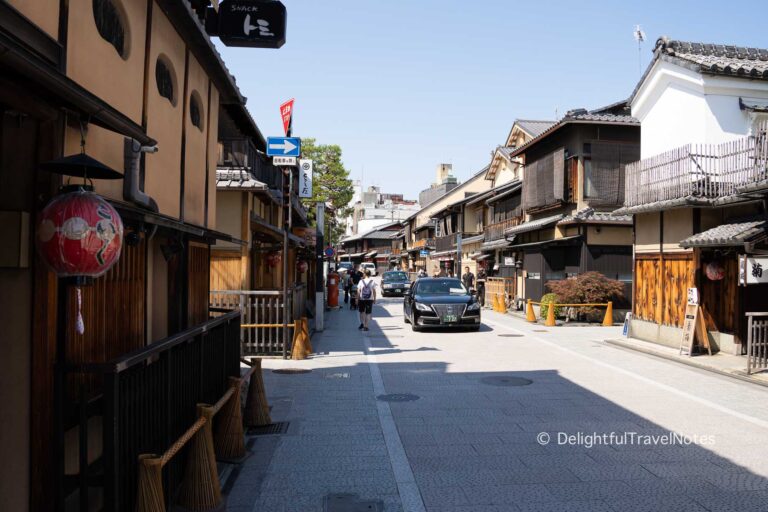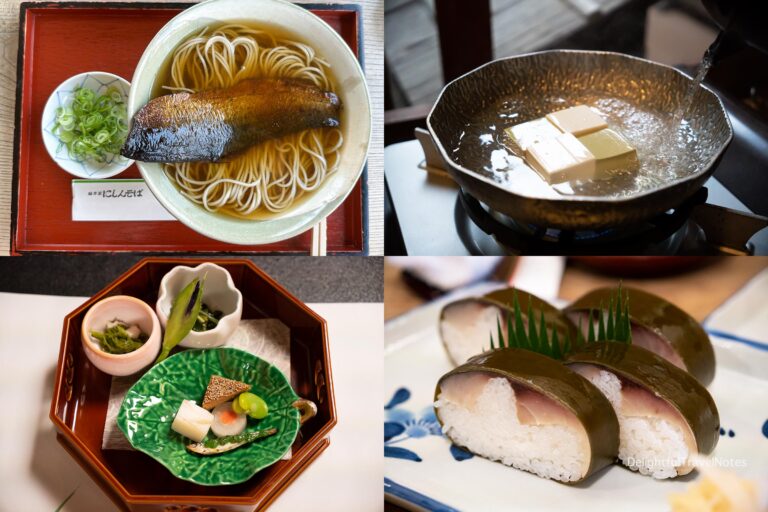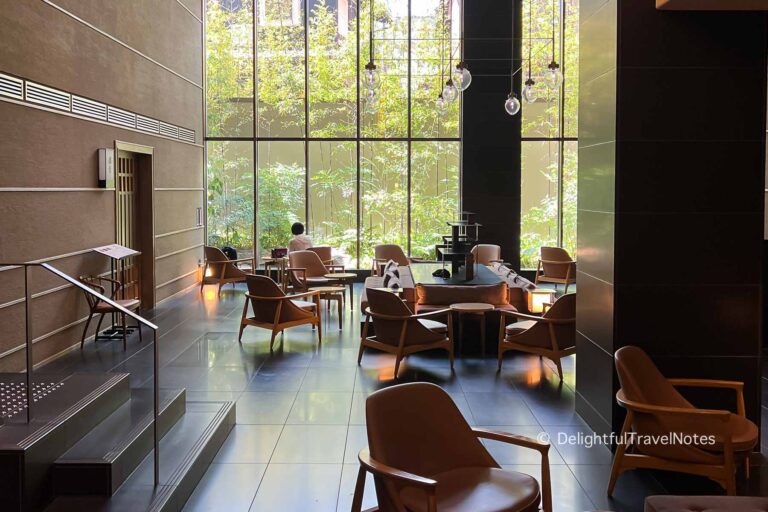Arashiyama Self-Guided Walking Tour & Things to Do
Located on the western side of Kyoto, Arashiyama is a fascinating blend of nature’s beauty and historical heritage. The well-known places in this area are usually filled with tourists. However, taking a few steps off the busy streets, you’ll find much less crowded spots that are just as beautiful. With this in mind, we’ve put together an Arashiyama self-guided walking tour that will take you through both the popular and the less visited parts. It was the route we actually took in our trip and thoroughly enjoyed.
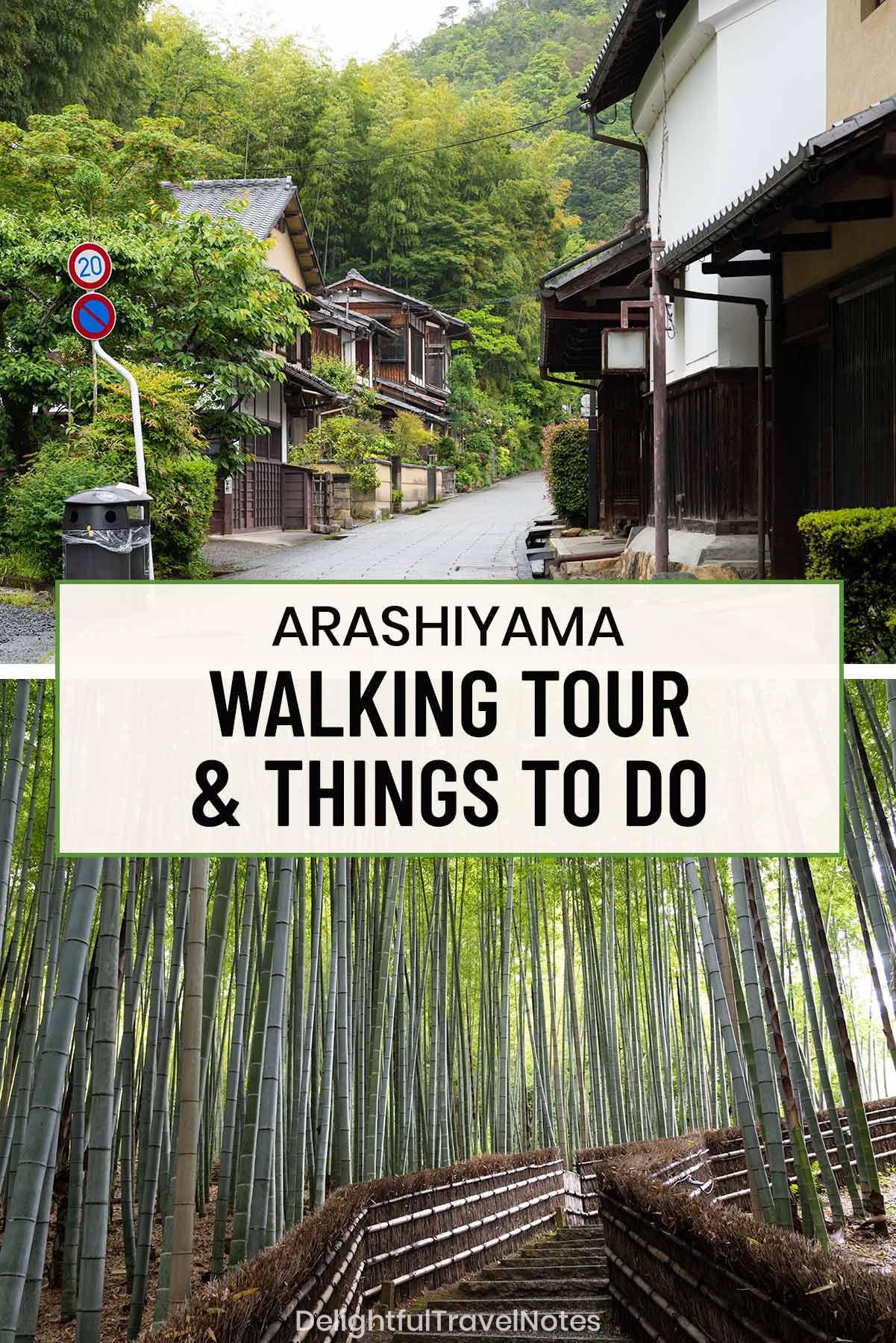
We initially planned to leave Arashiyama out of our four-day itinerary in Kyoto since it was quite far from our accommodation at the Celestine Gion hotel, and it looked like the main draw of the area was the bamboo forest which was always crowded. After doing more research, we realized there was much more to see in Arashiyama than the bamboo forest. So we came up with this walking route to explore the area while avoiding the crowds (to some extent).
In Arashiyama, popular places such as the bamboo forest and Tenryu-ji temple are always packed with people. In contrast, just a short walk from these busy spots, there are quiet corners where it feels like you have the whole place to yourself.
Suggested Route
First, we want to share the walking route we did ourselves, and then we will make some recommendations for alternative routes with a different starting point. Feel free to modify this self-guided walking tour to suit your preferences and schedules.
Otagi Nenbutsu-ji: Starting Point
- Hours: 8 am – 4:30 pm
Begin your self-guided walking tour at the serene Otagi Nenbutsu-ji temple in the morning. The easiest and quickest way to get here is by taxi, which we did. If you rely on public transportation, I think you will need to combine a train and bus ride.
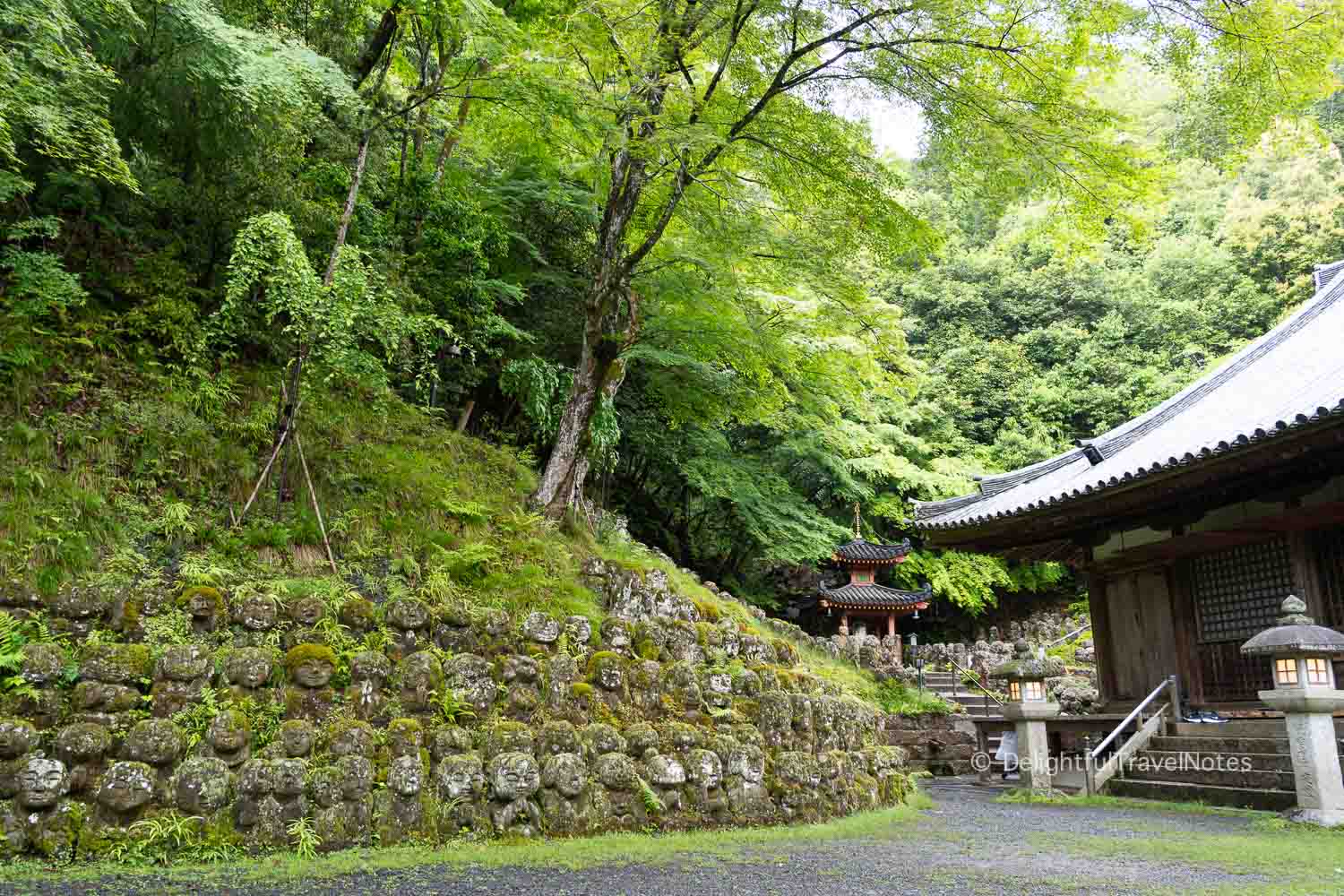
Otagi Nenbutsu-ji has been destroyed and rebuilt several times. Surrounded by the nature’s beauty with moss-covered stones and verdant forests, this place has such a serene atmosphere. We only saw 2-3 other visitors when we were there.
The temple’s highlight is the collection of about 1,200 stone statues of rakan (Buddha disciples), each with unique expressions and poses, conveying many facets of human emotions. These statues were hand-carved by amateurs and professional artists under the guidance of a head priest in the past.
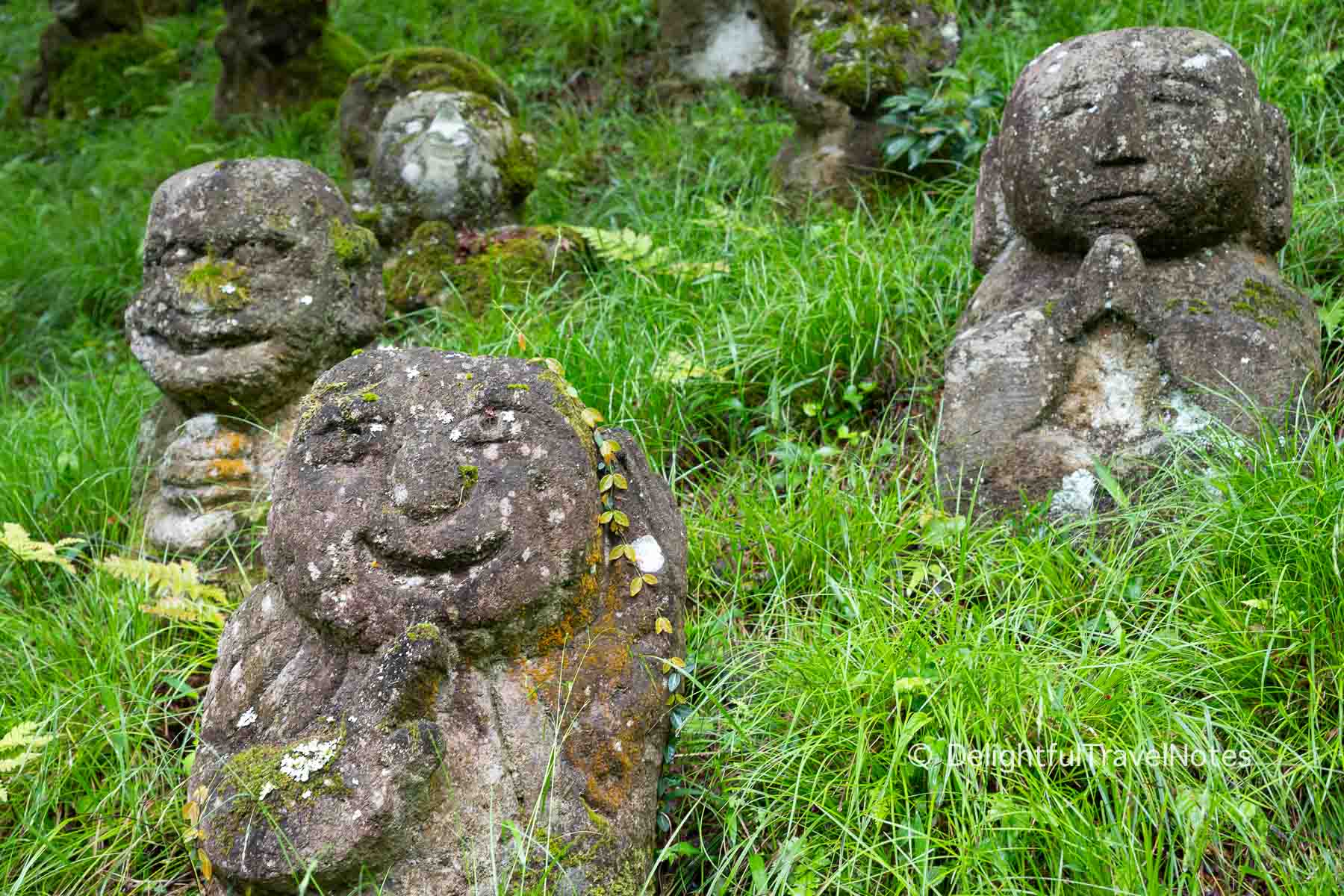
We chose Otagi Nenbutsu-ji as the starting point of our walking route also because from this point onward, the path is either downhill or flat, making the walk more enjoyable and less strenuous than an uphill one in the opposite direction.
Adashino Nenbutsu-ji
- Hours: 9 am – 4:30 pm
A short stroll downhill from Otagi Nenbutsu-ji is Adashino Nenbutsu-ji, another Buddhist temple known for its tranquil atmosphere. The temple has a rich history that dates back to the early Heian period in the 9th century. Here, you will find many stone Buddha statues serving as a memorial for the souls of the departed, giving the place a unique sense of peace.
Don’t miss the opportunity to walk through the bamboo garden at the back of the temple. Though it isn’t big, the bamboo garden is very beautiful and quiet. We enjoyed it much more than the popular Arashiyama bamboo forest.
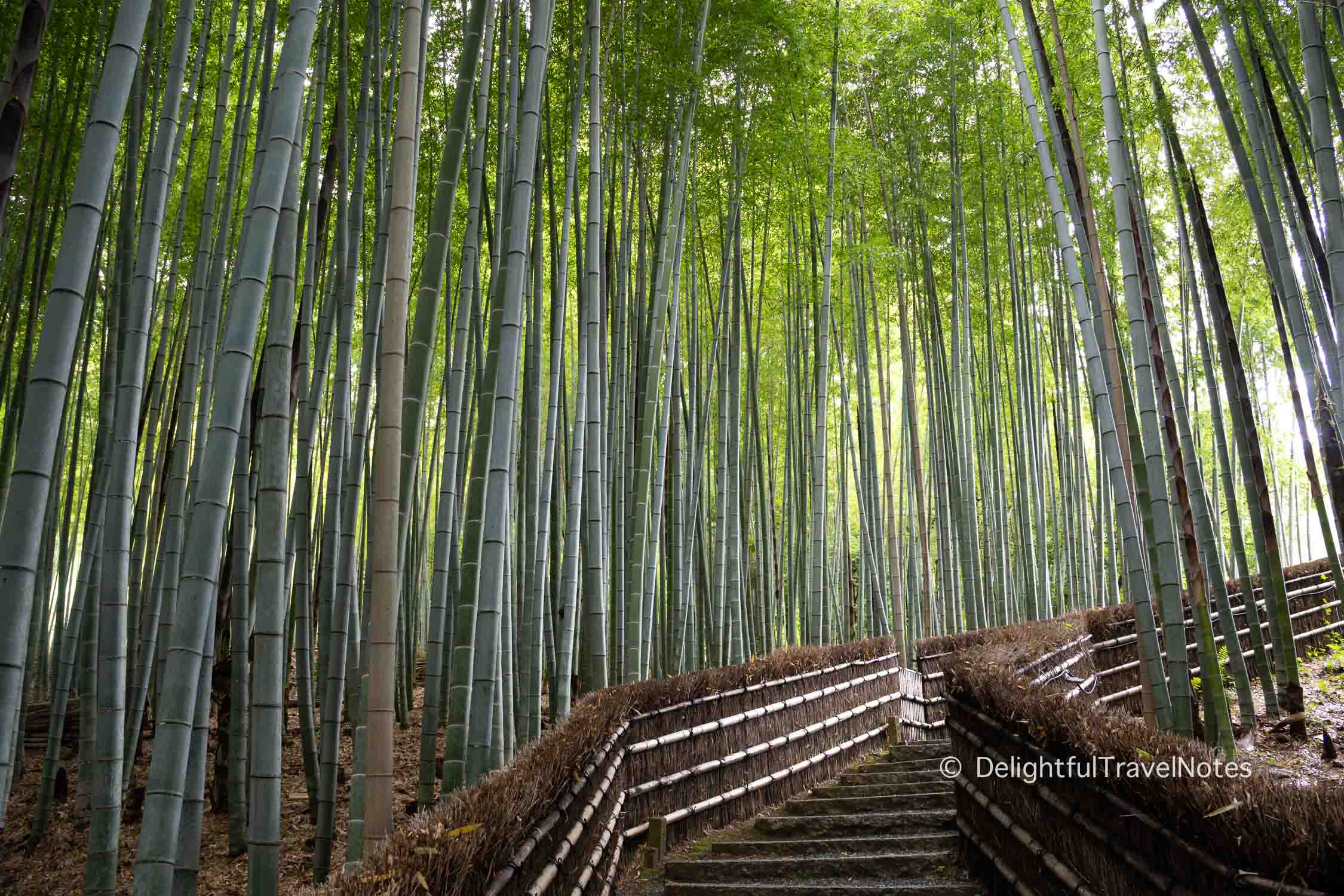
Saga Toriimoto Preserved Street
From Adashino Nenbutsu-ji, head toward the quiet and picturesque Saga Toriimoto Preserved Street. This charming area has retained its traditional Meiji Period ambiance with well-preserved wooden townhouses (machiya).
Walking down this area feels like a journey back in time. Many of the wooden houses that line the street have been carefully preserved or restored to maintain their original appearance. As you stroll down this historic area appreciating its tranquility, you can consider visiting some temples along the way, such as Gio-ji, Nison-in and Jokakko-ji.
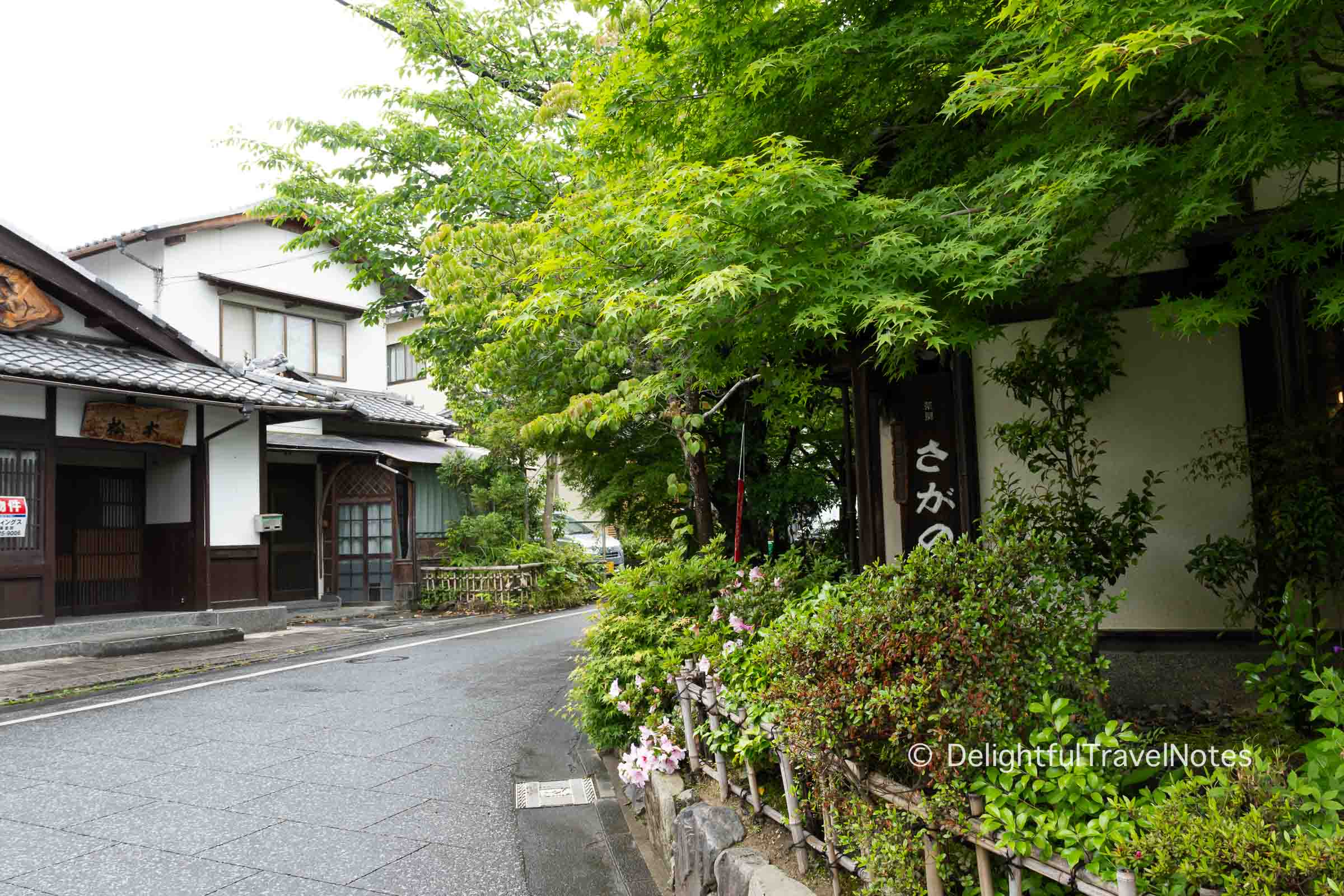
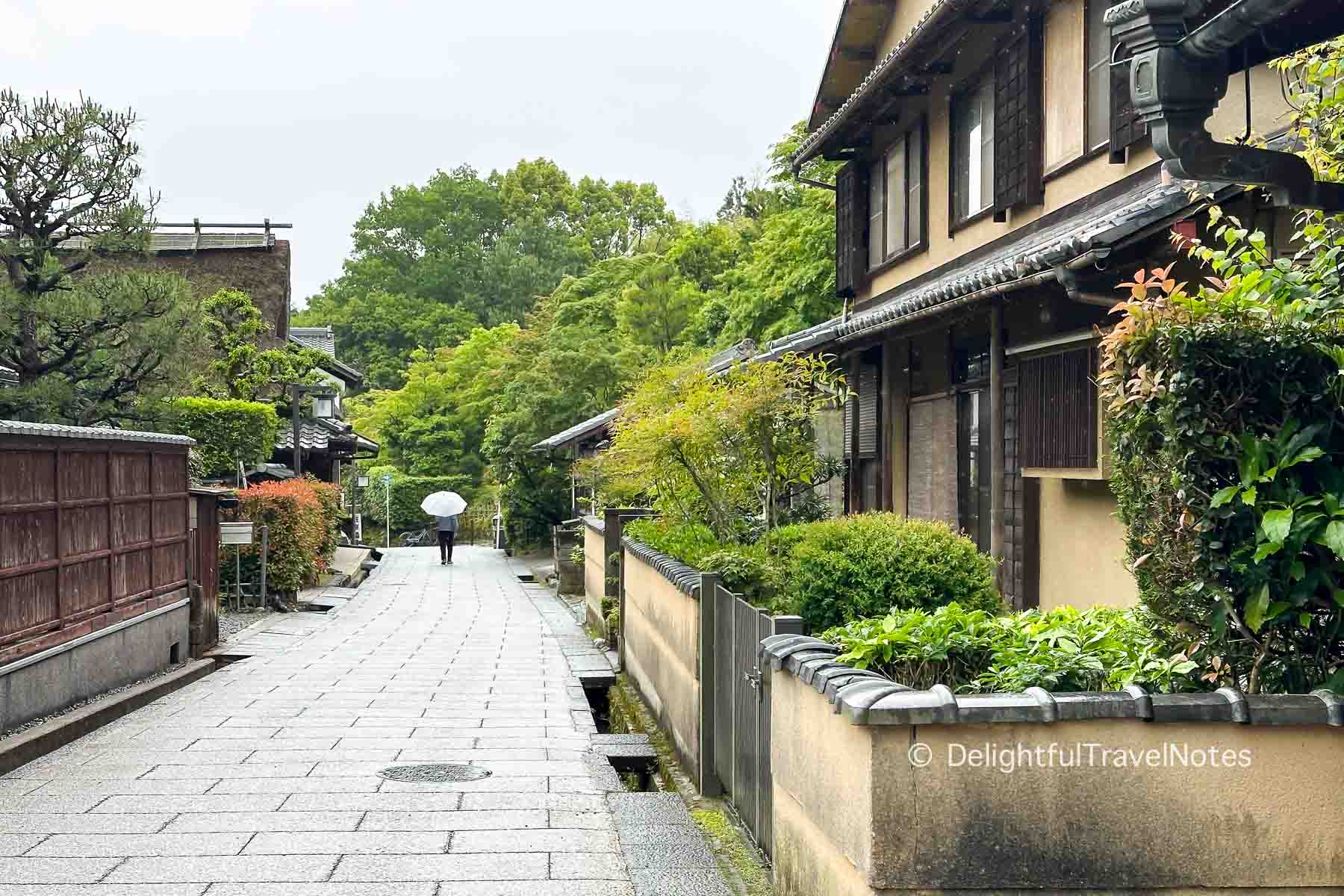
Arashiyama Bamboo Forest
- Hours: 24 hours
Continue to walk south for about 15-20 minutes toward the Arashiyama Sagano bamboo forest. The bamboo grove here is usually very crowded in the middle of the day. Despite the crowds, we quite liked listening to the rustling sound of bamboo leaves.
With that said, this bamboo forest still felt too touristy for us. The atmosphere was the opposite of what we experienced at the two Nenbutsu-ji temples. I have a write-up of lesser-known bamboo groves to visit in Kyoto as quiet alternatives to Arashiyama bamboo forest.
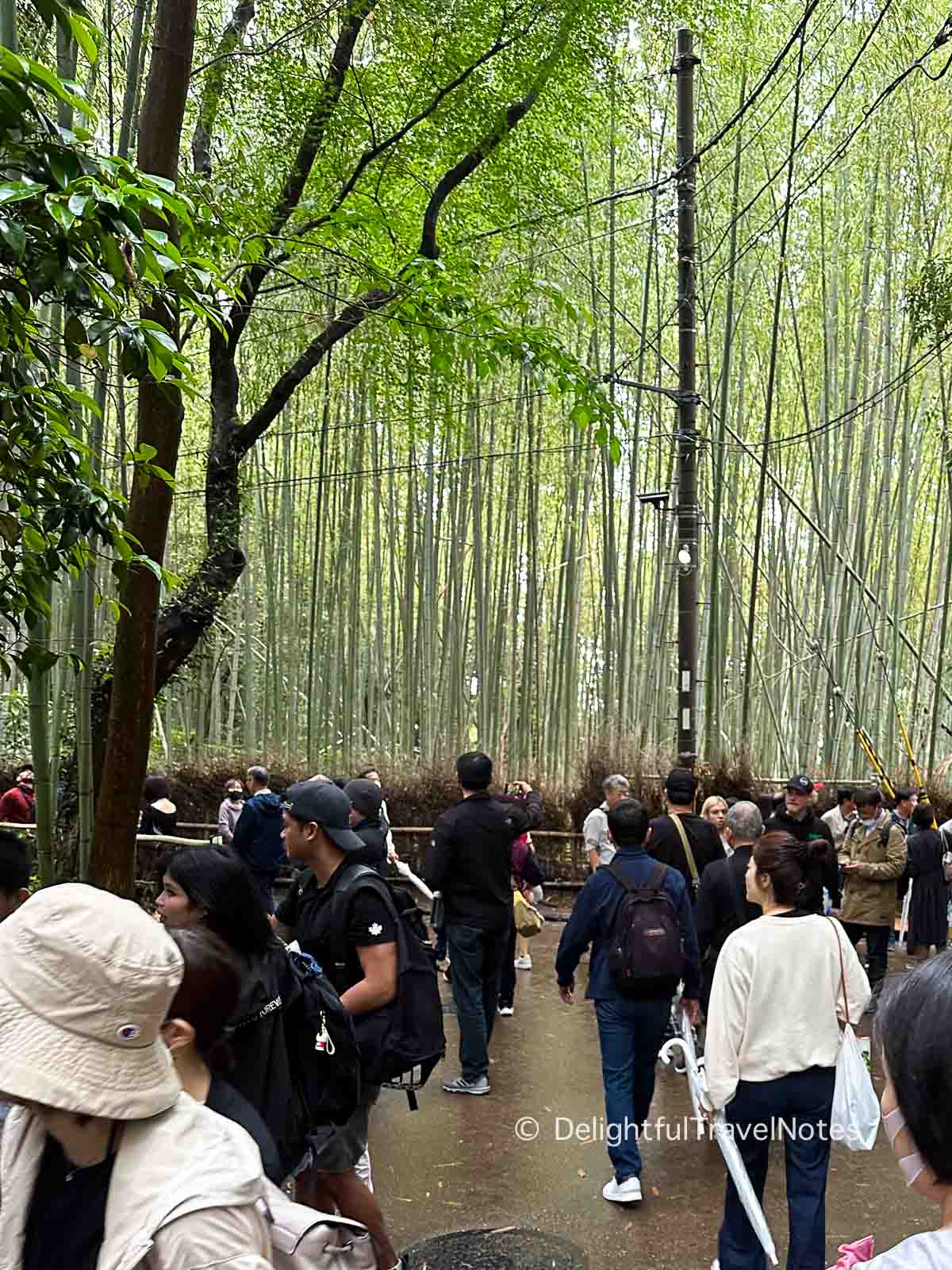
Once you reach the Arashiyama bamboo forest, you can choose between heading to Tenryu-ji or Okochi Sanso Garden. Of course, you can see both if your schedule allows.
Okochi Sanso Garden
- Hours: 9 am – 5 pm
Covering around 20,000 square meters, Okochi Sanso Garden includes a villa, a tea house, and several smaller buildings, all interconnected by a winding path that takes you through beautifully landscaped gardens. You will find a tranquil atmosphere at this garden, away from the crowds at the bamboo forest.
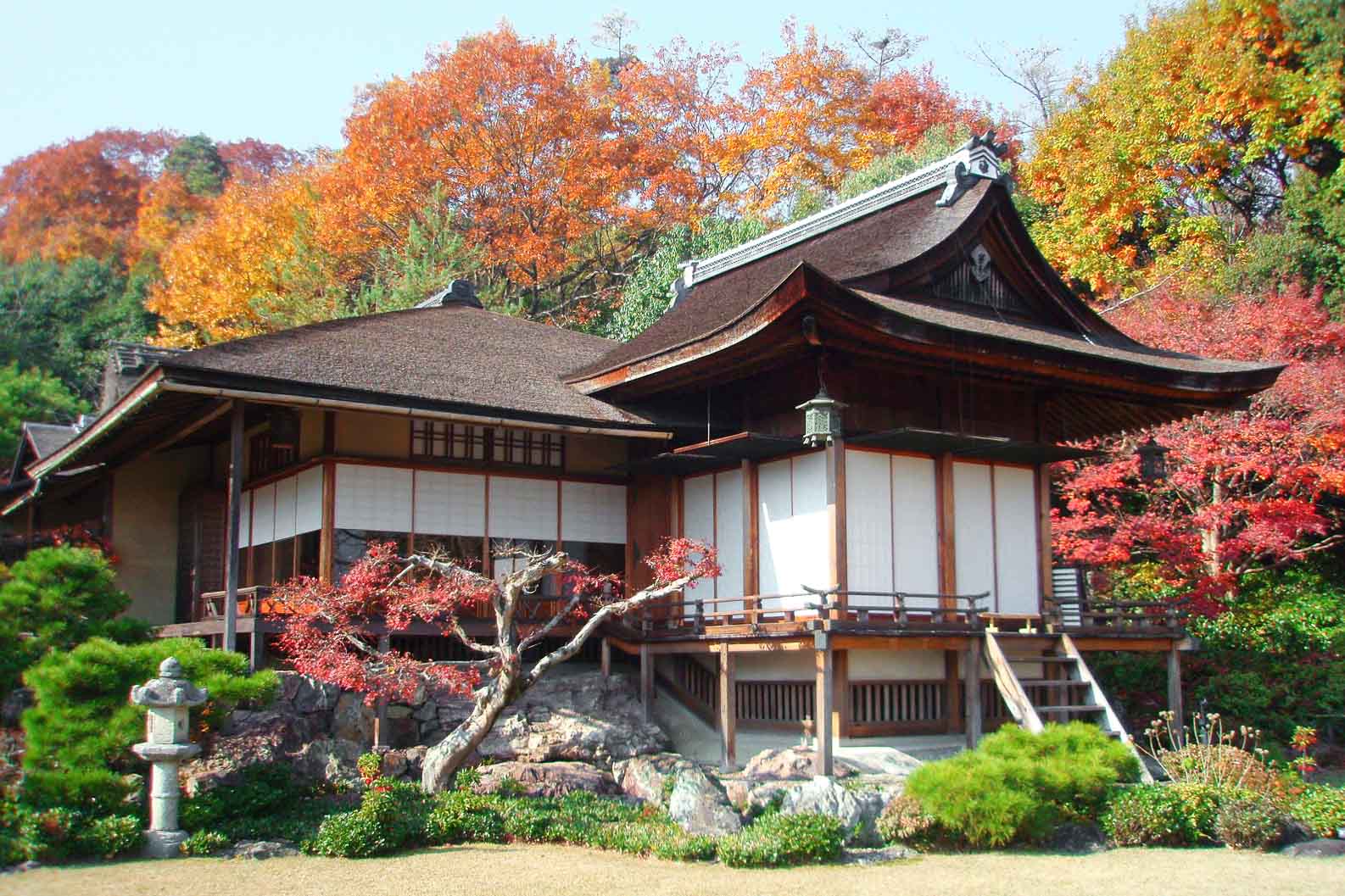
Tenryu-ji Temple
- Hours: 8:30 am – 5 pm
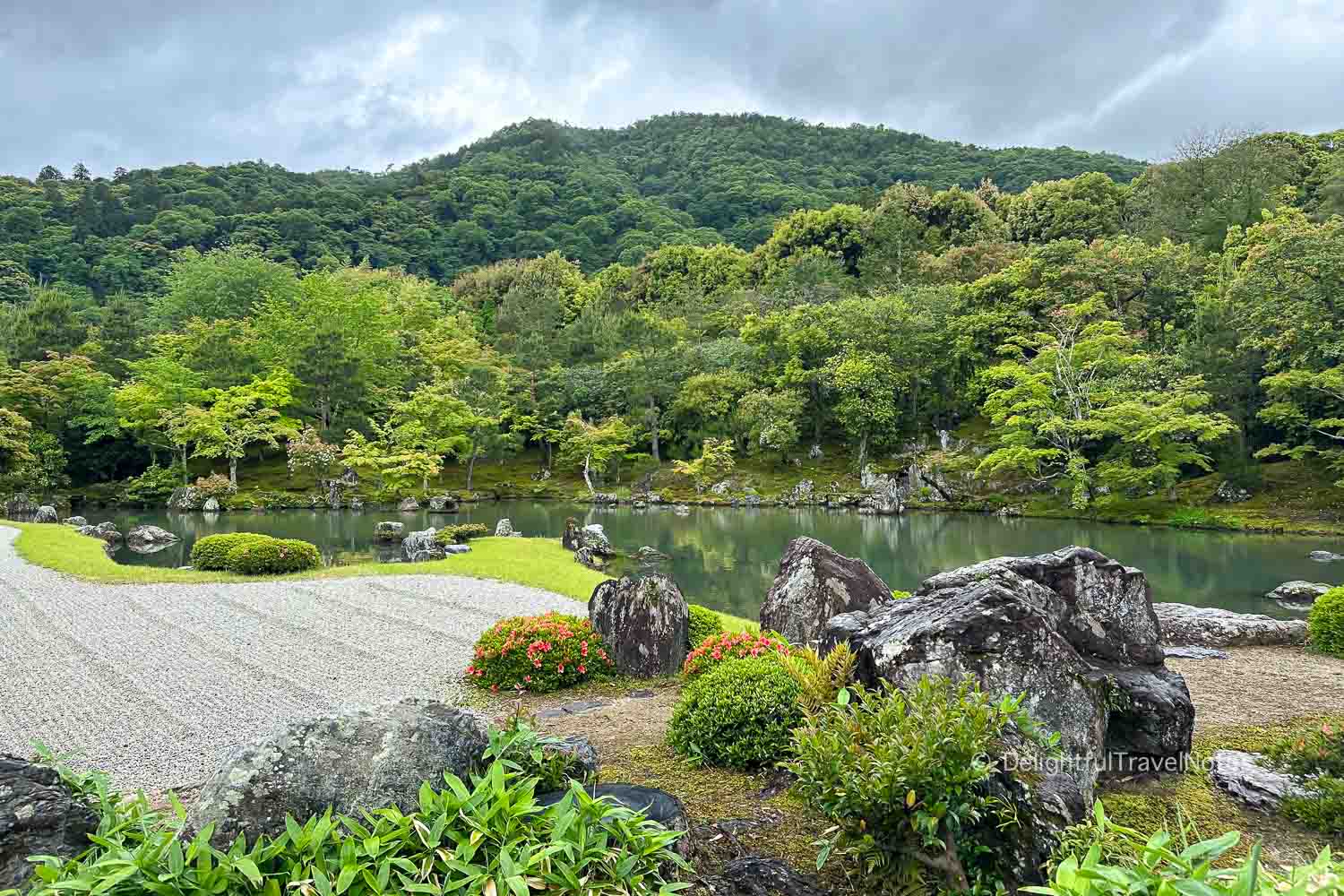
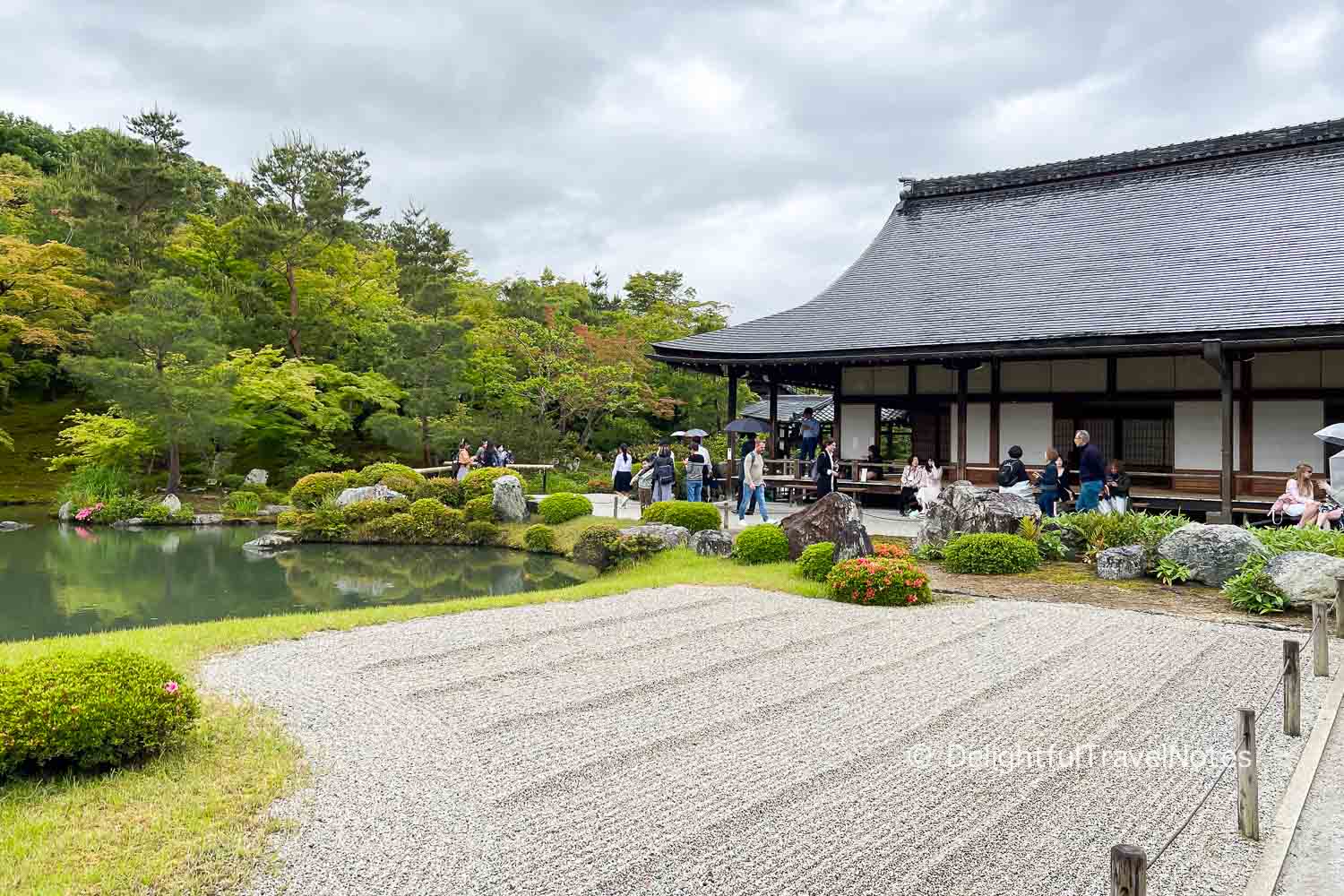
Tenryu-ji is a Zen Buddhist temple and a UNESCO World Heritage Site. Its name means “Temple of the Heavenly Dragon”. The temple complex houses several important cultural properties, including the main hall, the drawing hall, and the temple gate.
The garden is also a highlight at Tenryu-ji, and it is considered one of the most significant historical gardens in Japan. The surrounding landscape was incorporated into the design of the garden, creating a seamless blend of human-crafted elements and the beauty of nature. You will need to buy separate tickets for the garden and for the temple halls.
Togetsukyo Bridge
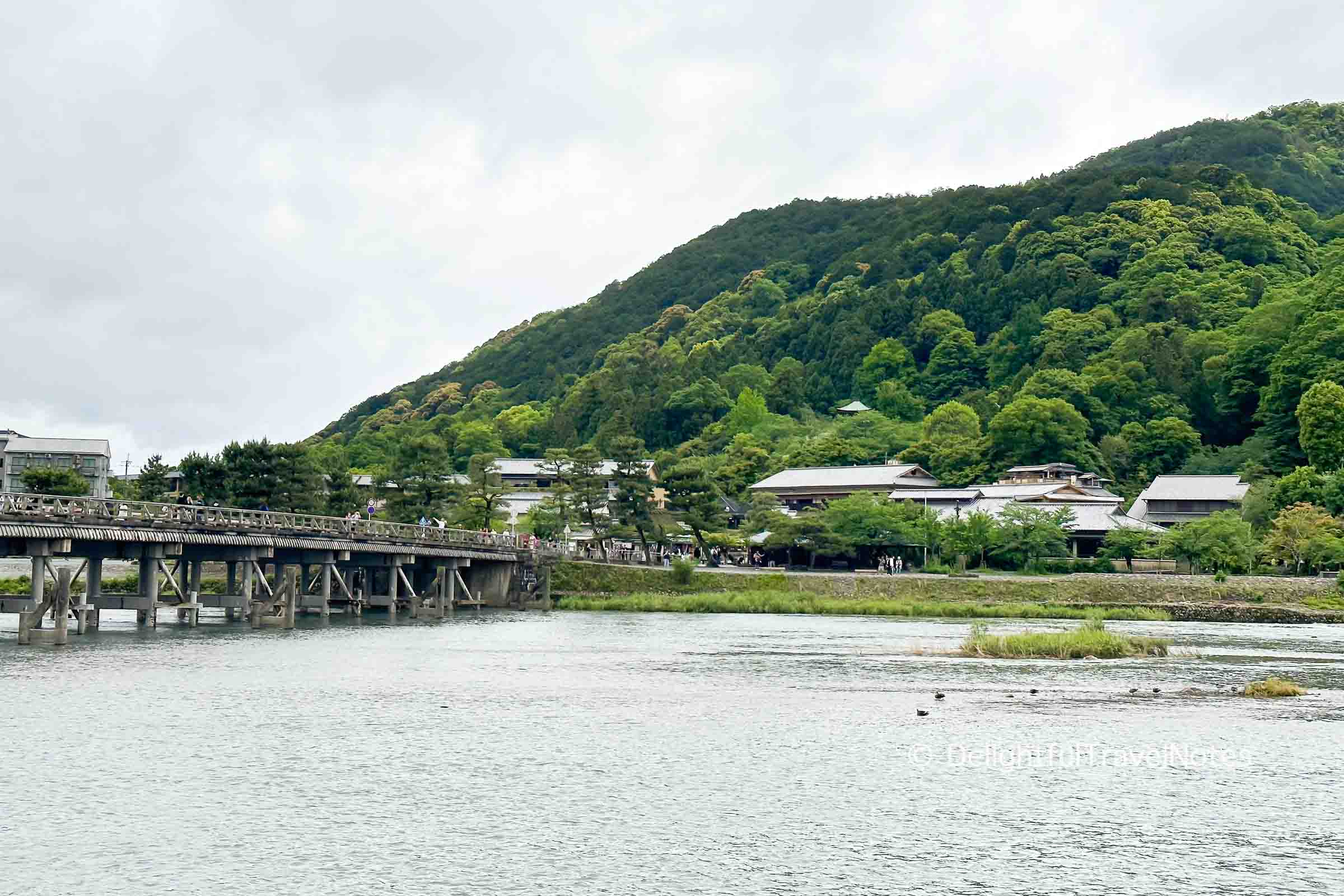
Continue the walk to Katsura River and Togetsukyo Bridge, where you will have a fantastic view of the river below and the surrounding mountains. The area can be crowded, but the scenery is incredibly picturesque. I can imagine how beautiful fall colors will be in Arashiyama.
The area surrounding the river and the bridge is bustling with a variety of shops, restaurants, and street food stalls offering local delicacies.
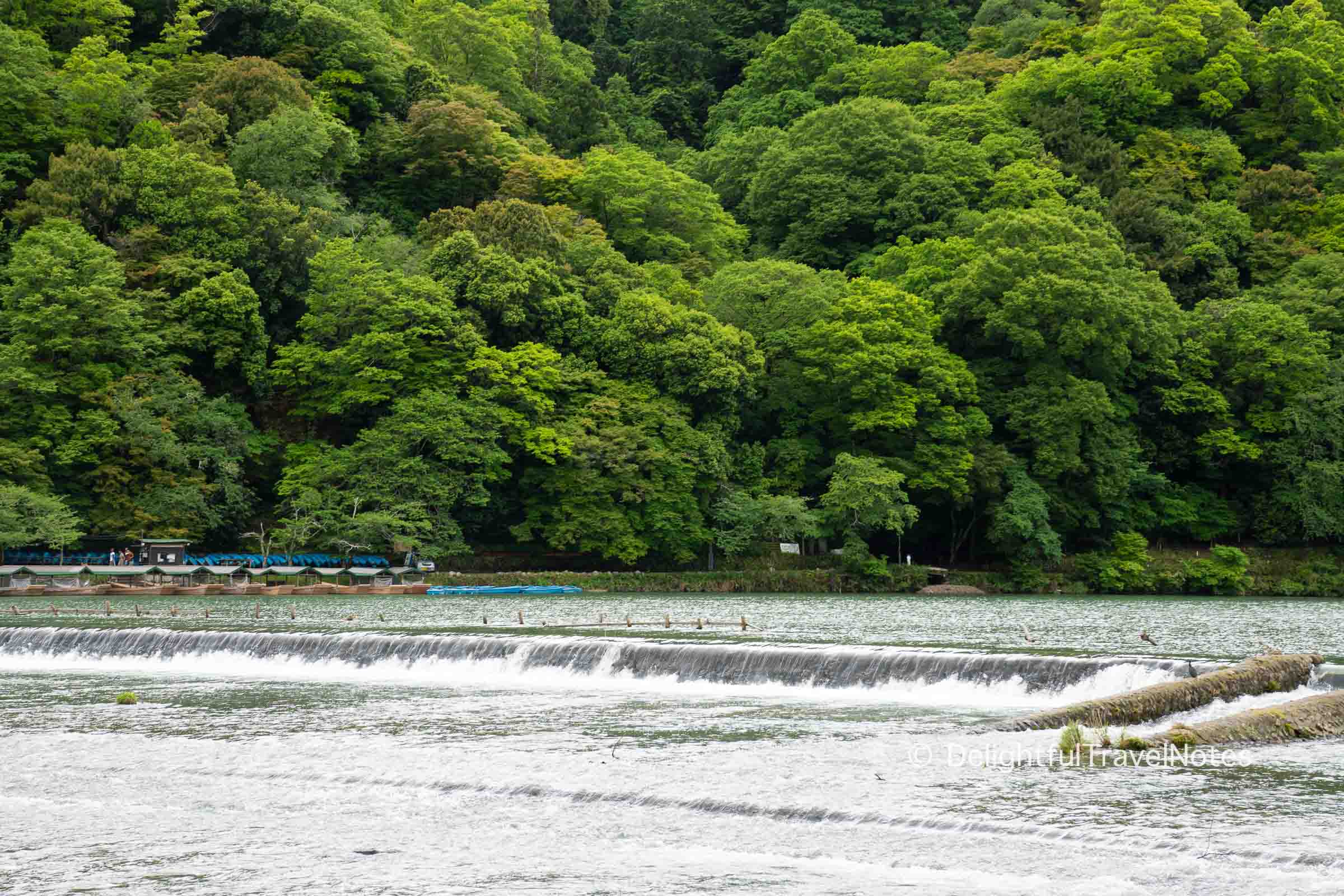
Arashiyama Monkey Park Iwatayama
- Hours: 9 am – 4 pm
Next, you can head to Arashiyama Monkey Park Iwatayama, home to a large troop of wild Japanese macaque monkeys. Visiting this park is one of the most popular things to do in Arashiyama. Here, you can enjoy panoramic views of Kyoto while feeding the monkeys under the staff’s guidance.
We didn’t go to this park since we had little interest in seeing monkeys. We saw some reviews that said the hike to the park was quite steep and rough.
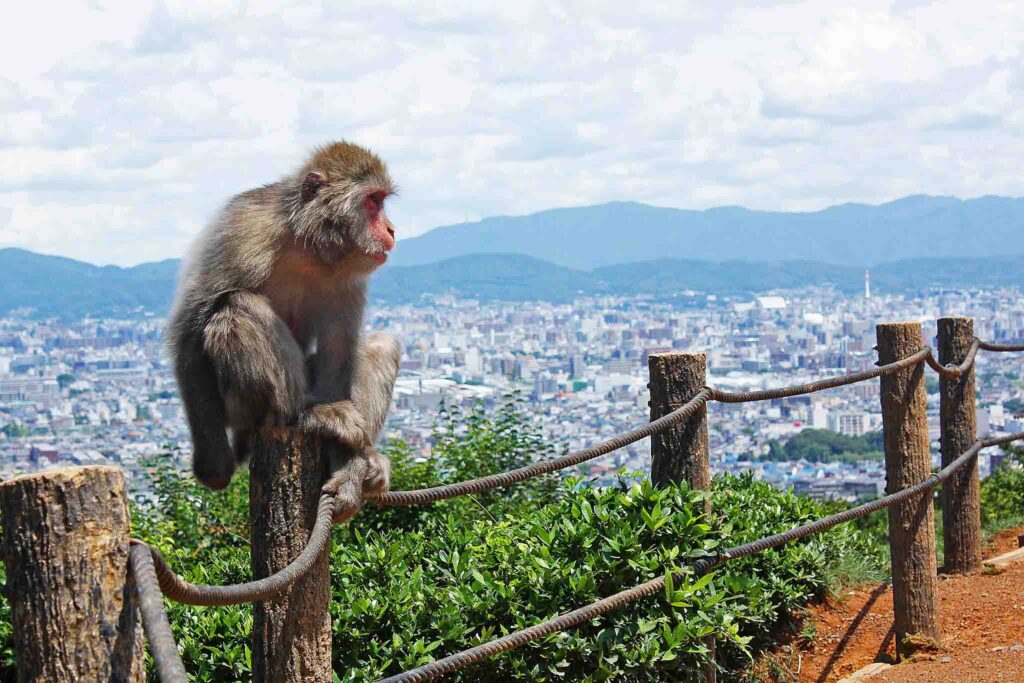
Alternative Route
The disadvantage of the walking route we took and suggested above is that you will arrive at Arashiyama bamboo forest and Tenryu-ji in the middle of the day. Both places will be packed with people by that time, affecting the experience. So, if you don’t mind waking up early, here’s an alternative route you can consider:
- Arrive at Arashiyama bamboo forest early in the morning and walk through it. Then visit Tenryu-ji right around its opening time.
- Take a taxi or bus to Otagi Nenbutsu-ji, and stroll down from there through Adashino Nenbutsu-ji and Saga Toriimoto Preserved Street. Then you can continue to visit Okochi Sanso Garden and the Monkey Park.
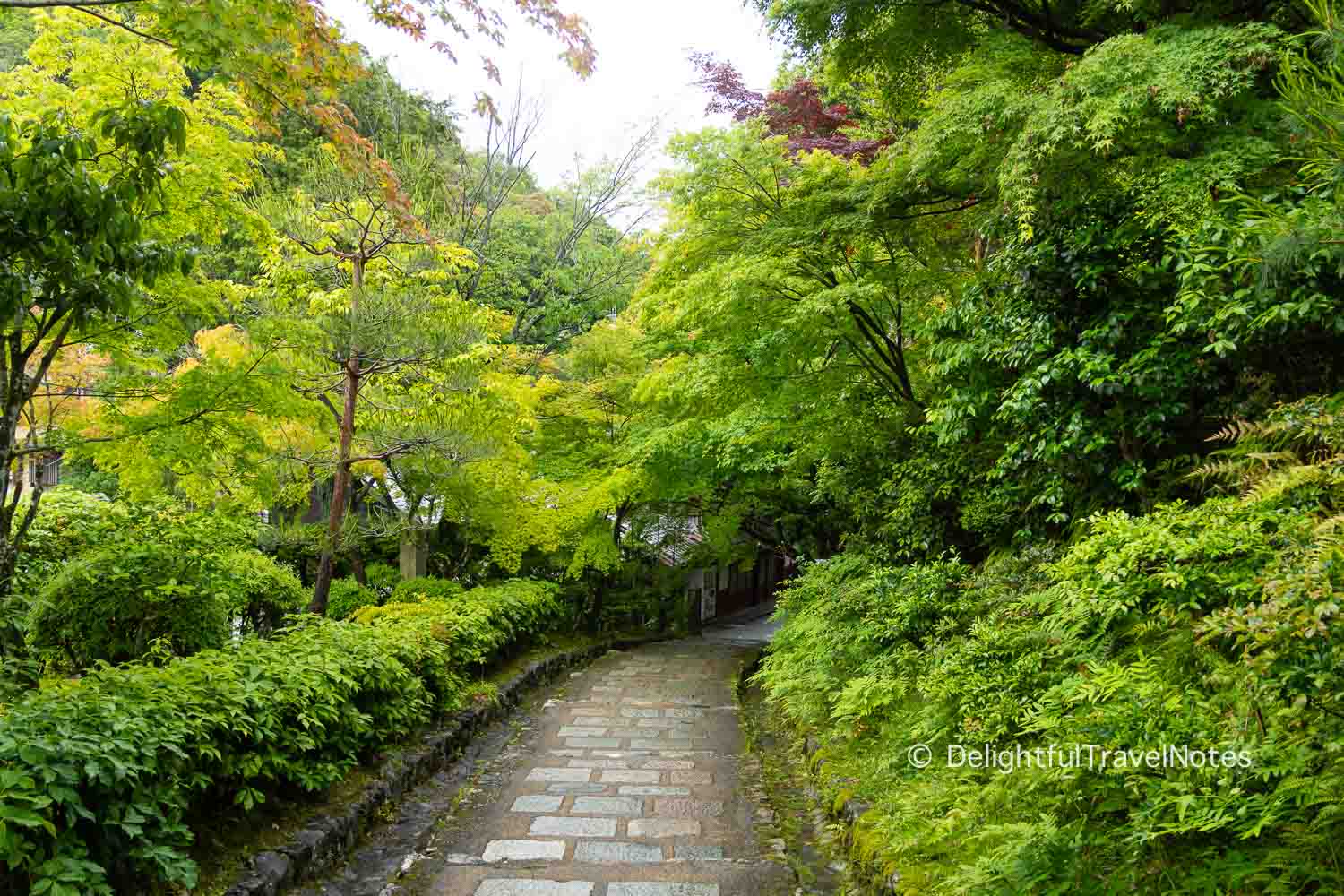
Instead of walking and exploring on your own, you can consider an Arashiyama guided walking tour to learn interesting facts and stories from a local guide. If the walk seems too long for you, it is possible to combine it with an Arashiyama rickshaw tour or bike tour. We saw quite a few tourists on the rickshaws.
Arashiyama Must-try Restaurants
If you visit all the places and do everything mentioned above, you will likely spend a whole day in Arashiyama. Take time to enjoy lunch in the area, giving your legs a break while savoring some excellent food. Here are some of the must-try restaurants in Arashiyama.
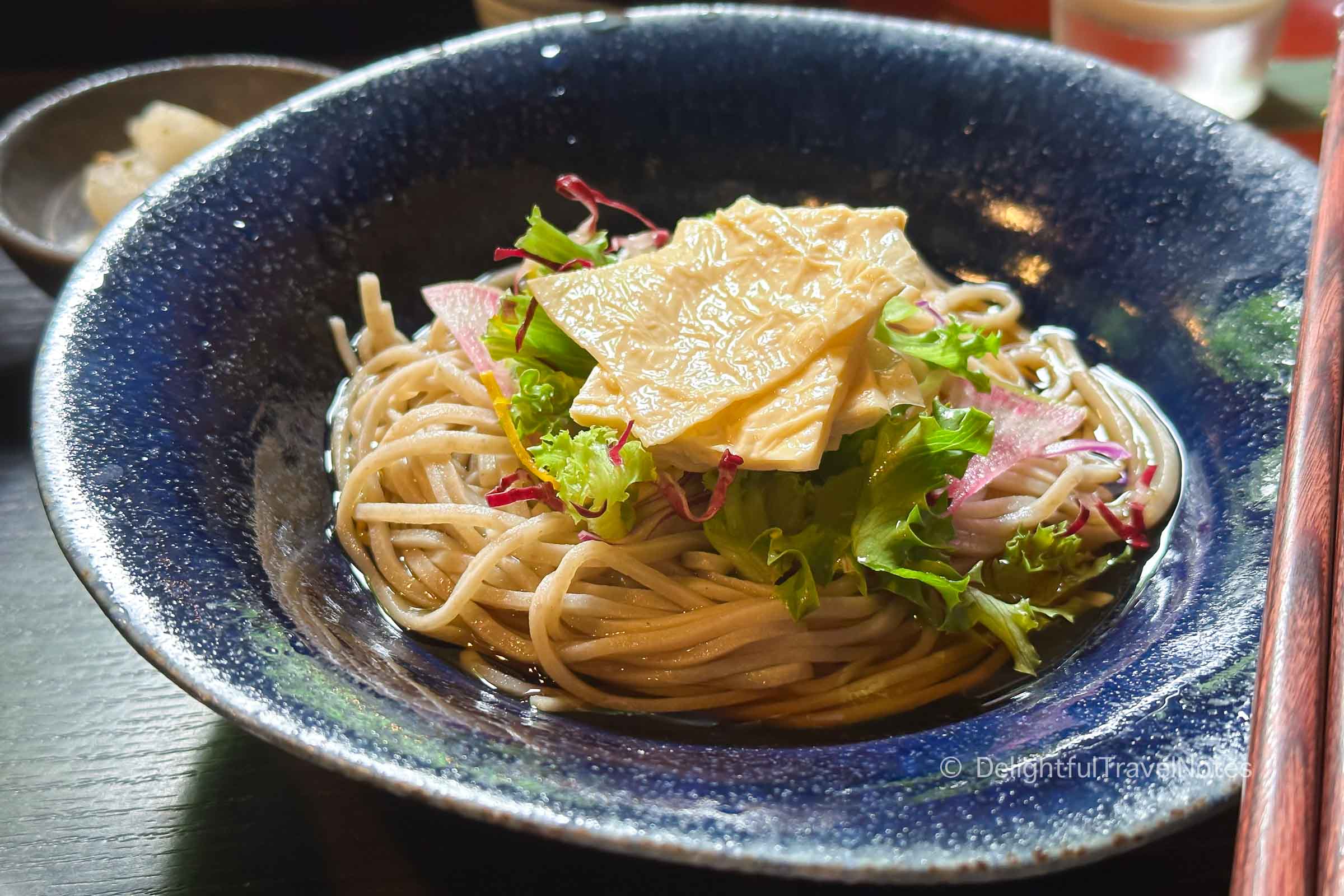
Tofu restaurants
Tofu is one of Kyoto specialty foods you must try. Below are several excellent tofu restaurants in Arashiyama. They all serve delicious multi-course meals that showcase tofu in various delectable forms.
- Shoraian: reservation is strongly recommended
- Yudofu Sagano
- Tofu Matsugae
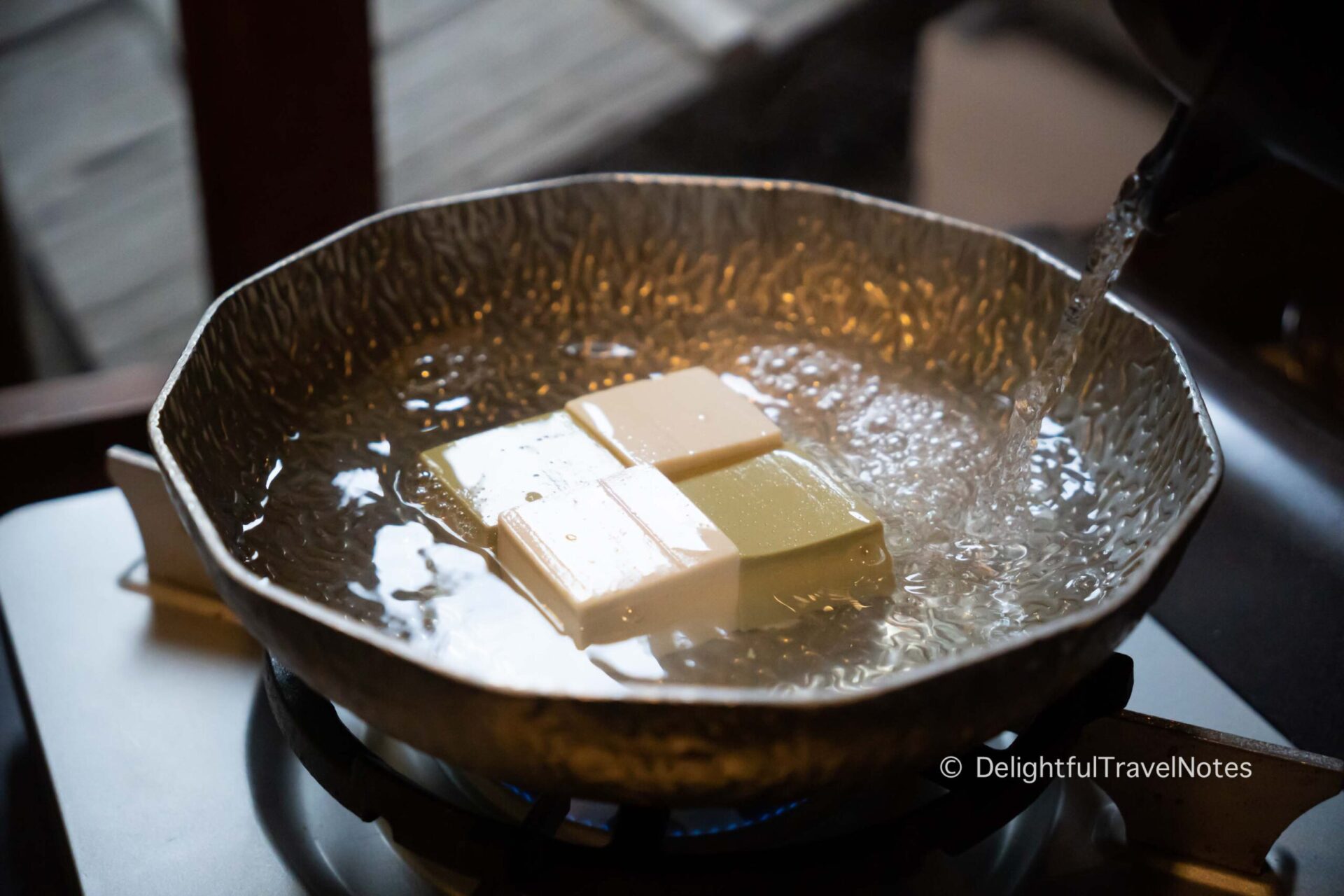
Tenryu-ji Temple Shigetsu
Shigetsu, located within the Tenryu-ji temple complex, serves shojin ryori, a traditional Buddhist vegetarian cuisine. The set meal consists of seasonal vegetables prepared in various ways.
Unagi Hirokawa
Kansai-style grilled eel is also one of Kyoto must-eats. Unagi Hirokawa specializes in grilled eel served over rice. Their unagi is tender, flavorful, and grilled to perfection. Note that it’s extremely popular, so many people line up before it opens.
Arashiyama Yoshimura
Located near Togetsukyo Bridge, Arashiyama branch of Yoshimura offers soba noodles with a view. Yoshimura’s handmade soba noodles can be enjoyed hot or cold. There may be a long wait around peak lunch time.
Conclusion
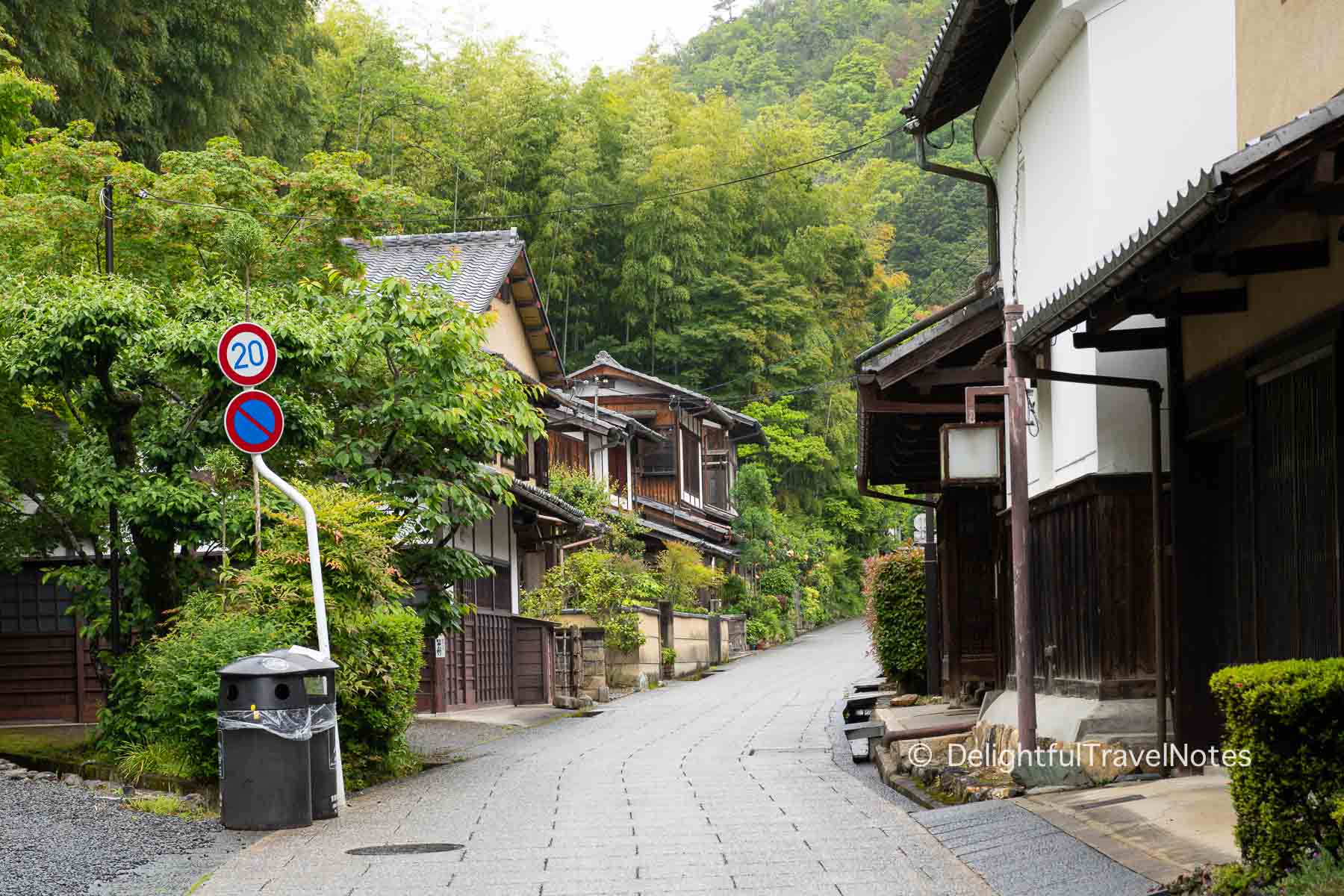
Arashiyama has much more to offer beyond the famous bamboo grove that it is so often recognized for, and we were glad we didn’t leave it out on our first visit to Kyoto. This fascinating area of Kyoto blends nature, culture, and history in a way that invites exploration and appreciation.
We hope you will find our suggested self-guided walking tours and things to do in Arashiyama useful. Please feel free to modify the walking routes as you see fit to create your own unique Arashiyama experience.

